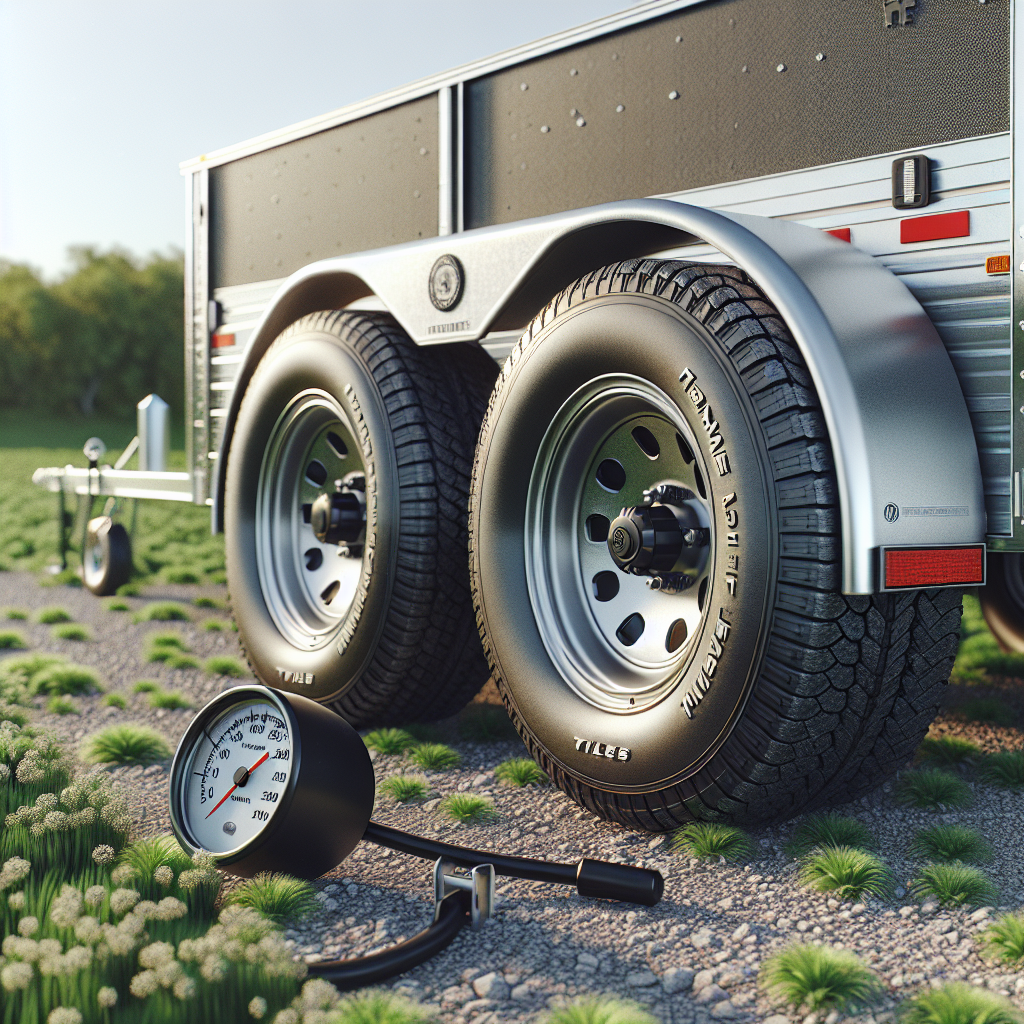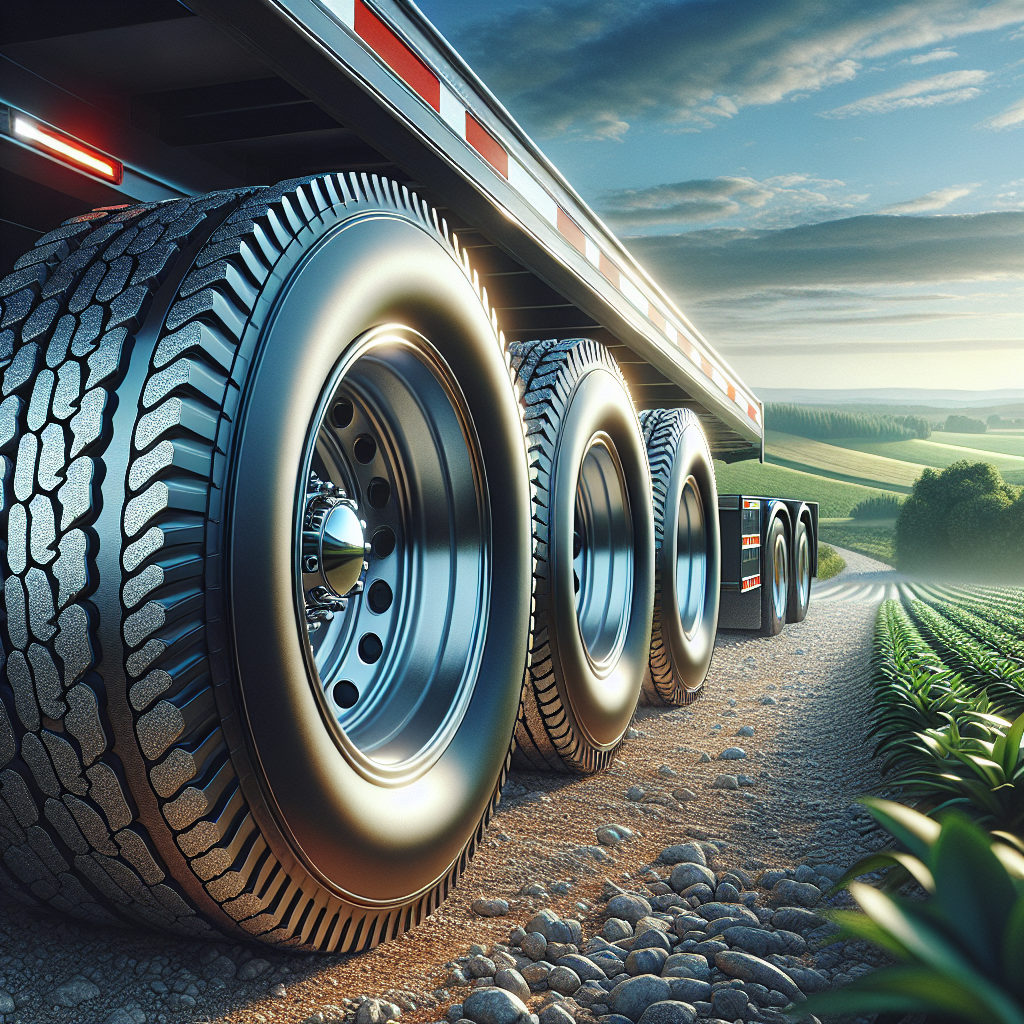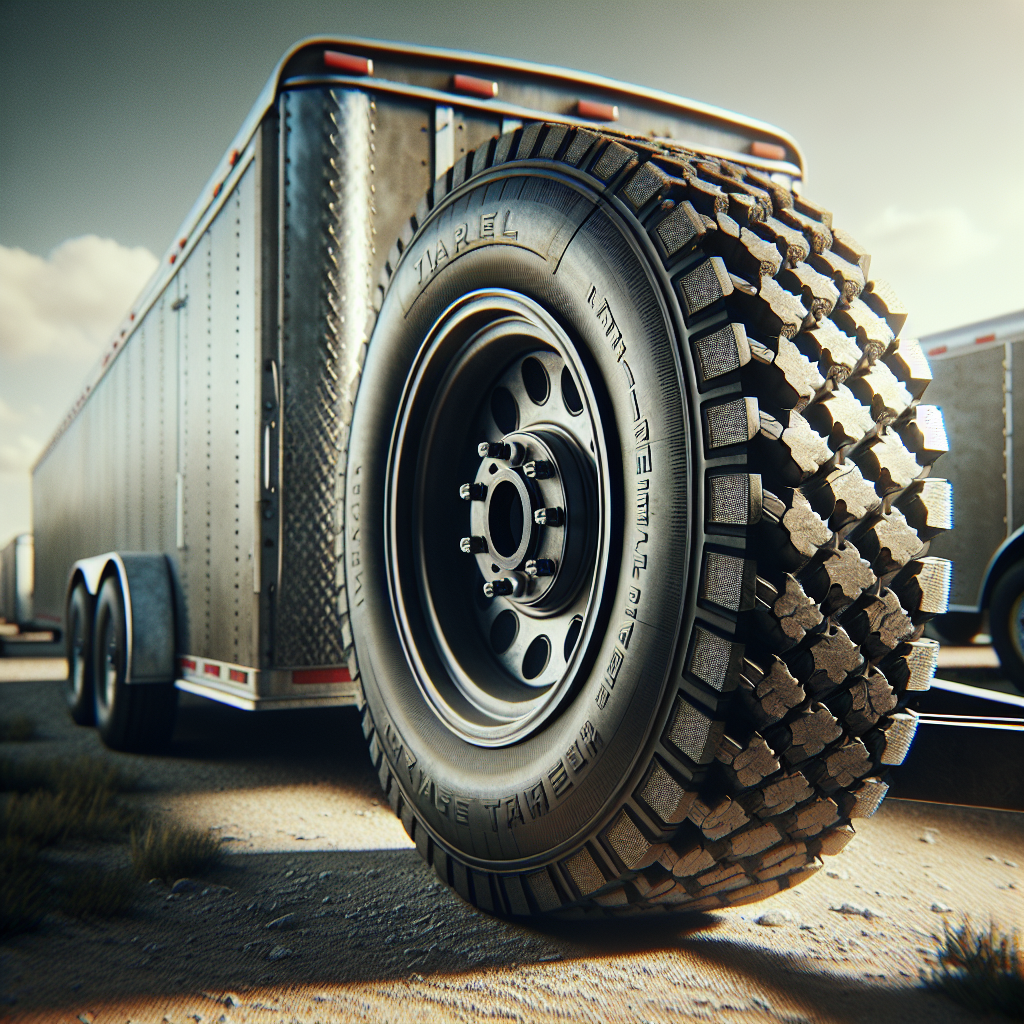When it comes to ensuring the safety and performance of your trailer, understanding the proper tire air pressure is crucial. The question how much air should be in my trailer tires is often a point of confusion for many trailer owners. Maintaining the correct tire pressure not only enhances the lifespan of your tires but also significantly improves fuel efficiency and overall handling.
Trailer tire air pressure can vary based on several factors, including the size of the tires and the trailer's load capacity. Here are some key points to consider:
- Manufacturer Recommendations: Always refer to the trailer manufacturer’s guidelines for the recommended PSI (pounds per square inch). This information is typically found on a sticker located on the trailer frame or in the owner's manual.
- Load Conditions: The amount of weight your trailer carries can affect tire pressure. Heavier loads may require higher pressure to maintain stability and prevent overheating.
- Temperature Variations: Tire pressure can fluctuate with temperature changes. It’s advisable to check tire pressure when the tires are cold, as driving can heat them up and give a false reading.
Regularly checking and adjusting your trailer's tire pressure can prevent unnecessary wear and tear, improve safety, and enhance your towing experience. Remember, keeping your tires properly inflated is a simple yet effective measure to safeguard against potential blowouts or handling issues.
Tow with peace of mind, knowing that trailerwatchdog is standing guard. For more information on how to monitor your trailer's performance, visit trailerwatchdog.com.
Importance of Proper Air Pressure in Trailer Tires

Maintaining the right air pressure in your trailer tires is not just a matter of convenience; it is essential for safety and performance. When tires are properly inflated, they can better support the weight of the trailer and its load. Here are several reasons why keeping the correct air pressure is vital:
- Enhanced Safety: Under-inflated tires can lead to poor handling and increased stopping distances, which can be particularly dangerous when towing heavy loads. Properly inflated tires provide better traction and stability, reducing the risk of accidents.
- Improved Fuel Efficiency: Tires that are inflated to the correct pressure reduce rolling resistance, which means your vehicle requires less energy to move. This leads to improved fuel economy, saving you money on fuel costs during long hauls.
- Longer Tire Life: Correct air pressure helps to distribute the weight evenly across the tire surface, reducing uneven wear and tear. This can significantly extend the lifespan of your trailer tires, allowing you to get more miles out of your investment.
- Prevention of Blowouts: Low tire pressure increases the risk of tire blowouts, which can be catastrophic, especially when towing. Proper inflation helps maintain the structural integrity of the tire, providing an extra layer of safety during travel.
Ultimately, ensuring that your trailer tires are at the recommended air pressure is a simple maintenance task that pays off in terms of safety, performance, and cost savings. Regularly checking tire pressure should be a standard part of your pre-towing checklist, ensuring that you hit the road with confidence.
How to Check Air Pressure in Trailer Tires
Checking the air pressure in your trailer tires is a straightforward process that can be done quickly with the right tools. Regular monitoring is essential to ensure optimal tire performance and safety. Here’s a step-by-step guide on how to effectively check the air pressure in your trailer tires:
- Gather Your Tools: You will need a reliable tire pressure gauge, which can be digital or analog. Make sure you also have a portable air compressor or access to one, in case you need to inflate the tires.
- Check the Recommended Pressure: Before you begin, locate the recommended tire pressure for your trailer. This information is typically found on a sticker inside the trailer’s door frame or in the owner’s manual. It’s important to refer to this specification, as it can differ from standard vehicle tire pressures.
- Remove Valve Caps: Start by removing the valve caps from each tire. Be sure to keep these caps in a safe place to prevent losing them.
- Use the Tire Pressure Gauge: Press the tire pressure gauge onto the valve stem firmly to get an accurate reading. Make sure you hear a slight hissing sound when you first press down, which indicates that air is escaping and the gauge is working. Read the measurement displayed on the gauge.
- Adjust Pressure as Needed: If the tire pressure is below the recommended level, use your air compressor to inflate the tire to the correct pressure. If it’s too high, you can release some air by pressing the small pin in the valve stem.
- Replace Valve Caps: Once you have finished checking and adjusting the air pressure, replace the valve caps securely to prevent dirt and moisture from entering the valve.
By following these simple steps regularly, you can maintain proper air pressure in your trailer tires, ensuring safe and efficient towing on every journey.
Recommended Air Pressure for Different Trailer Types

Understanding the recommended air pressure for different trailer types is crucial for maintaining tire health and ensuring safe travels. Various trailers have distinct requirements based on their design, weight, and intended use. Here’s a breakdown of recommended air pressures for common trailer types:
- Utility Trailers: These versatile trailers often carry a variety of loads. The recommended air pressure typically ranges from 50 to 60 psi. However, always check the manufacturer’s specifications since the load can affect the required pressure.
- Travel Trailers: For travel trailers, maintaining a pressure of 40 to 50 psi is generally advised. This ensures stability and optimal handling, especially when towing long distances.
- Boat Trailers: Boat trailers usually require a slightly higher pressure, around 50 to 65 psi. This is essential to support the weight of the boat and provide a smooth ride.
- Horse Trailers: Given their heavy loads, horse trailers often need a pressure setting between 50 and 70 psi. Proper inflation is vital for the safety and comfort of both the horses and the driver.
- Dump Trailers: These trailers, designed for heavy loads, typically require a pressure of 45 to 60 psi. It's important to adjust this based on the specific load being carried.
Always remember that the best practice is to consult the owner’s manual or the tire manufacturer’s recommendations for the most accurate pressure settings. By adhering to these guidelines, you can ensure your trailer operates safely and efficiently on the road.
Signs of Underinflated or Overinflated Trailer Tires

Maintaining the correct air pressure in your trailer tires is essential for safety, performance, and longevity. Being aware of the signs of underinflated or overinflated trailer tires can help you prevent costly damages and ensure a smooth towing experience. Here are some key indicators to watch out for:
-
Underinflated Tires:
- Excessive Wear on Edges: If you notice that the outer edges of your tires are wearing down faster than the center, it may indicate that your tires are underinflated.
- Poor Handling: A trailer with underinflated tires may feel unstable or wobbly while towing, leading to difficulty in steering and control.
- Increased Heat: Underinflation generates excess heat, which can lead to blowouts or tire failure.
-
Overinflated Tires:
- Center Wear: If the center of the tire tread is more worn than the edges, this is a strong sign of overinflation.
- Bouncing or Skipping: Overinflated tires may cause the trailer to bounce or skip over bumps, resulting in a rougher ride.
- Reduced Traction: Tires that are too inflated can lose their contact with the road, leading to decreased traction and increased stopping distances.
Regularly checking your trailer tire pressure and monitoring these signs can help you maintain optimal performance and enhance safety on the road. Addressing tire inflation issues promptly not only extends the lifespan of your tires but also contributes to a safer towing experience.
Maintaining Optimal Air Pressure for Trailer Tires

To ensure a safe and efficient towing experience, maintaining optimal air pressure for trailer tires is crucial. The right tire pressure affects not only the handling and performance of your trailer but also contributes significantly to tire longevity. Here are some essential tips to help you keep your tires properly inflated:
- Regular Pressure Checks: It is recommended to check the air pressure of your trailer tires at least once a month and before any long trips. Use a reliable pressure gauge to obtain accurate readings.
- Follow Manufacturer Guidelines: Always refer to the owner’s manual or the tire placard located on your trailer for the recommended tire pressure. This information is tailored to your specific trailer and tire type.
- Adjust for Temperature Changes: Tire pressure can fluctuate with temperature changes. For every 10°F change in temperature, tire pressure can change by about 1 PSI. Be sure to adjust your tire pressure accordingly, especially during seasonal transitions.
- Inspect for Damage: While checking tire pressure, take the opportunity to inspect the tires for any signs of damage, such as cracks or bulges, which may indicate the need for replacement.
By adhering to these practices, you can significantly enhance the safety and efficiency of your trailer. Properly inflated tires not only provide better fuel efficiency but also reduce the risk of tire blowouts. Tow with peace of mind, knowing that trailerwatchdog is standing guard.








